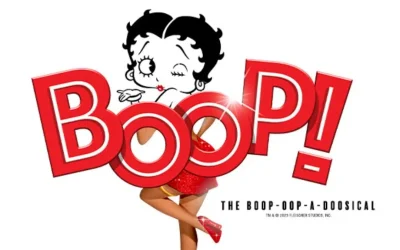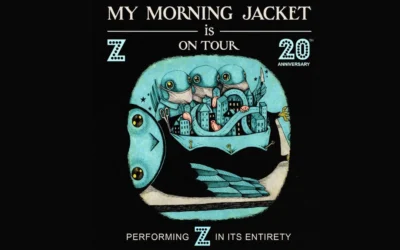Recently, 50 members of the U.S. House of Representatives lent their signatures to a letter sent to Assistant Attorney General Christine A. Varney imploring the U.S. Department of Justice to halt the Live Nation/Ticketmaster merger.
“This shows the profound level of concerns over the antitrust effects of the Ticketmaster-Live Nation merger. To get 50 signatures is stunning, almost unprecedented,” said Washington, D.C.-based attorney David Balto.
The letter is the result of the efforts of U.S. Representative Bill Pascrell, Jr., a democrat from New Jersey. In June, Pascrell introduced a bill nicknamed the BOSS Act (Better Oversight of Secondary Sales and Accountability in Concert Ticketing Act). He named it after Bruce Springsteen.
Critics of Ticketmaster have been rallying around Springsteen since February of this year. That’s when his fans, trying to buy tickets to one of his shows, were redirected away from Ticketmaster’s website to the website of their subsidiary, TicketsNow, a ticket reseller.
On TicketsNow, ducats to see “The Boss” were selling for hundreds of dollars more than face value price. The incident sparked outrage among consumers and attracted the attention of both the New Jersey Attorney General’s office and national lawmakers.
Not to be outdone, the U.S. Senate is also getting into the act. In late July Senator Herb Kohl, a democrat from Wisconsin, sent his own letter to Varney.
“I believe this proposed merger presents serious competition concerns which should be reviewed carefully by the Antitrust Division, and that the Justice Department should approve this deal only if it finds that it likely will not substantially reduce competition in the concert ticketing and promotion markets,” wrote the Senator.
In an era of economic distress, terrorism, porous borders and other pressing national concerns congress seems to be tripping over themselves to deride a merger between two companies in the concert industry. That’s not to say anti-trust laws are unimportant, but ultimately this whole debate is about saving a couple of bucks on concert tickets—not exactly a vital necessity.
However, joining the fight against the merger is a great way to get your name in the paper and to be on the same side of an issue with a universally beloved rock star like Bruce Springsteen. Not only that, but Ticketmaster is one of the most vilified companies in America and no elected officials will lose votes haranguing them in public.
To be fair, the lawmakers have touched on the complex issues surrounding the merger. They mentioned “vertically integrated entity,” “reduce horizontal competition,” and other such wonky terms. They raised concerns about the future of independent promoters and other small businesses within the concert industry. Kohl even goes so far as to argue that the Live Nation/Ticketmaster merger will hurt the secondary ticket market.
While these are great talking points, politicians wouldn’t even be discussing this merger if the public didn’t already hate Ticketmaster and their fees.
Thanks to congressional hearings we now know these fees are actually part of the ticket price and imposed by the artist. From the hours of testimony from pundits, critics and proponents concerning the merger it’s been revealed that most of Ticketmaster’s faults actually belong to the artist and/or the promoter.
Besides looking good in the public’s eye for fighting the “evil” Ticketmaster, this issue is also being politicized.
“Under the Bush Administration, the Justice Department’s enforcement of our country’s antitrust laws was almost nonexistent,” Pascrell wrote in his letter.
Not only are politicians using the Live Nation/Ticketmaster merger for publicity but they’re also using it to show how “tough” the Obama administration is on those big bad corporations.
That’s why lawmakers’ vocal opposition to this merger seems quite disingenuous. It’s a safe and easy way for them to score points with consumers on a superfluous yet passionate issue replete with a bona fide villain.
While congress spreads fear and panic over higher ticket prices they never mention what may or may not happen to the stock prices of these companies if the merger is approved or rejected (a merger between two rather underperforming companies).
The stock prices of these companies will affect more consumers to a much greater degree than a few dollars tacked onto a ticket. But being on the side of Wall Street nowadays is not exactly a great way to earn popularity points.
While lawmakers have worried what this merger will do to the secondary ticket market, their concerns are nowhere near the top of their list of grievances. In reality, it should be their main concern.
Loss of the secondary ticket market means the elimination of hundreds of small businesses that make up the resell industry. In other words, it will be to the detriment to the exact entity most of these politicians say they champion. Yet, since resellers aren’t exactly fan favorites it’s not advantageous for lawmakers to defend them.
Fans and politicians deride the cost of concert tickets but artists like U2 and Bruce Springsteen are still selling out venues. It’s not like they are playing to half full stadiums or empty arenas.
It’s odd how congress argues for vertical and horizontal competition in an industry where there is really no competition. There’s only one U2. There’s no “other U2.” There’s no “U2 West” or “U2 Lite.” If you want to see U2 live, you’ll have to pay what they charge.
Most people know exactly how much they are willing to spend to see U2 perform in concert. Unfortunately for those fans so does U2, their promoters and Ticketmaster.
Mark Anderson is a writer for AuthorityTickets, a secondary ticket market Web site that offers original commentary and information on the event ticket industry. Mark is a professional sports and entertainment writer who also regularly contributes to the ClickitTicket blog, a place that offers current, original concerts tour, theater and sports articles.




